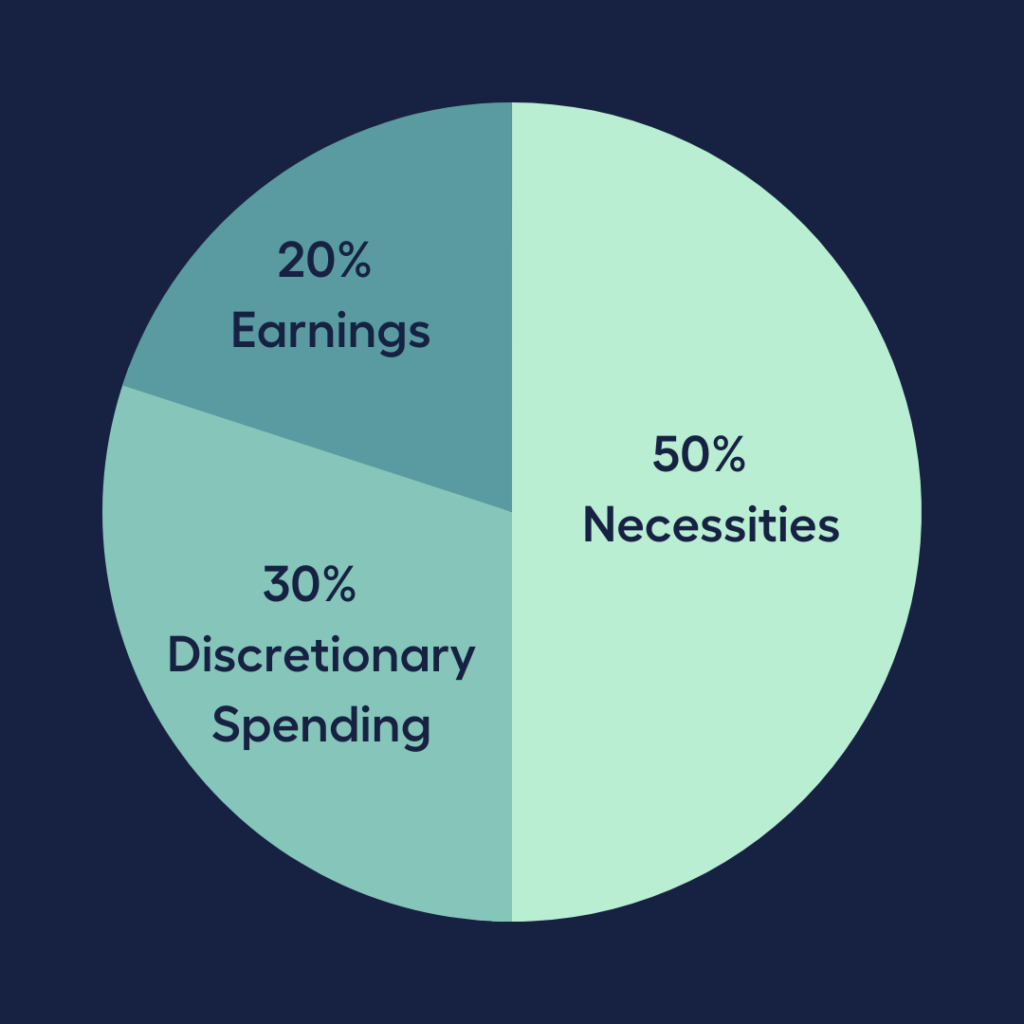Due to rising interest rates, home loan repayments, energy bills, and just about every item we buy, Australians can’t help but think:
How can I save more money sooner?
Getting into the habit of saving money is a great idea whether times are good or bad. So let’s dive into the tips, tricks, and best ways to help you save money fast.
Jump straight to…

How to increase savings?
The idea of increasing your savings can seem complicated at first. You can simplify the process by looking at it as doing two things:
Making your savings work for you
and
Making your money last longer.
How To Make Your Savings Work for You
You make your savings work for you by being smart with your savings accounts and investments. Consider if some of these available products suit you. With these four products, you can take advantage of interest rates and lower fees to save money fast and secure your financial future.
4 Products That Help Make Your Money Work For You |
| Automatic Transfer High-interest Savings Accounts Term Deposits Exchange Traded Fund |
1. Automatic Transfer
Get a portion of your salary directly transferred into your savings account. Or perhaps your bank can set up automatic direct deposit from your everyday transaction account to your savings.
2. High-interest Savings Accounts
High-interest savings accounts pay a higher interest rate if you meet certain account requirements, like making regular deposits. Compare savings accounts products to get a better deal.

3. Term Deposits
Term deposits lock in your interest rate, so even if interest rates fall, your rate remains constant and you know exactly how much you will receive when your term deposit matures.
Lock in money you don’t expect to use for the length of the term. Otherwise, you’ll end up paying fees for early withdrawal.

4. Exchange Traded Fund (ETF)
An exchange traded fund (ETF) is a stock exchange-traded fund in which you own a group of shares or options in a single trade.
The four most significant benefits of ETFs are:
- trading flexibility
- portfolio diversification and risk management
- lower costs
- tax advantages
Learn more about investing in ETFs in this article.
How To Make Your Money Last Longer
You make your money last longer by having a budget. A budget helps you keep track of where you spend money and identify where you can cut costs and save money fast.
We have 20 money saving tips to help you identify your big expenses and where you can improve your budget.
20 Tips to Save Money
Tips to Cut Costs

Tip #1
Cut Down on Paying for Convenience
Paying for convenience can save you time, but it can also be expensive.
Taking time to brew your own coffee, cook your meals, bring packed lunch to work, or do repairs yourself can help you save money fast.
Decide to spend less money on items you don’t care as much about. If purchasing coffee from a coffee shop is important to you and brings joy to your daily life, go ahead and do it, but find another way to save money.

Tip #2
Cancel Unused Subscriptions and Memberships
Maybe you enrolled in a new streaming service during the free trial period but neglected to unsubscribe. Another possibility is that you no longer use your gym membership.
Check your bank statements or credit card bills each month for any recurring monthly fees on any subscription service you don’t use. Put that money in your savings account after you’ve cancelled any needless subscription or streaming services.

Tip #3
Reduce Your Grocery Budget
Planning your meals in advance is one of the best methods to cut down on your grocery shopping expenses. You can create a shopping list and calculate a spending limit before you go shopping, reducing the possibility of going over budget.

Tip #4
Cut Back on Rent
Rent is one of the biggest expenses in a monthly budget.
You might be able to start saving right away by relocating to a place with a lower rent. Or if you’re single, you could get a housemate to share the rent.

Tip #5
Reduce Your Utility Costs
Some ways to save money while cutting down on your electricity bill is to shift to energy efficient appliances. They cost less to run, so buying an energy efficient appliance is a better deal than sticking with old appliances.
Another is to use LED light bulbs. They use 75–85 per cent less energy and last 15–25 times longer than regular light bulbs.
Seal up any air gaps around your windows and doors to keep air from escaping when you have the heater or air conditioner on.

Tip #6
Manage Your Urge to Overspend
Spending money is now more convenient than ever thanks to credit cards, ATMs, and online shopping, especially on things we want rather than need.
Don’t buy that item immediately, even if it’s on sale. Take a step back and ask yourself:
How often will I be using this item?
Give yourself at least three to four days to consider a purchase before you make it.
This is a surefire strategy to prevent you from impulse buying. Additionally, it allows you enough time to determine if you can find a better offer elsewhere.

Tip #7
Pick a No-Spend Day
To help you develop a habit of saving money, set aside one day each month where you will spend nothing.
This could include socialising in the park or at home, followed by a relaxing evening of reading or watching TV.
Once you’ve gotten used to it, you could increase it to two days per month, and possibly even one day per week, to significantly increase your monthly savings.

Tip #8
Avoid Banking Transaction Fees
Paying $2 or for an ATM withdrawal may not seem like much, even if you do it just once a week, that’s $104 in fees over a year. Get the right debit card that offers free ATM withdrawals to avoid ATM fees.
Likewise, if you frequently shop online from foreign websites or travel abroad, you may be paying an additional 3% on top of each purchase with foreign transaction fee. Look for a savings account that doesn’t charge this fee.
Tips to Manage Bill Payments

Tip #9
Automate Your Bill Payments
Automate your monthly bill payments so as not to miss due dates and incur late fees.
Online banking services often include online bill payment, and are offered by both online and traditional banks. You can typically set up your bank to automatically pay your bills.

Tip #10
Evaluate Your Recurring Bills
Assess your pay TV, satellite, or streaming alternatives to see if you can save money. Ask yourself:
Am I still getting a good deal from these subscriptions?
You might begin with a good deal from your current providers that expires after a certain period of time. Finding a new deal after a few years could save you money.
Tips to Manage Debts and Loans

Tip #11
Get Out of Debt Quickly
Your existing debts grow larger the longer you delay settling them. This is due to the fact that interest, which is the cost of borrowing money, accumulates over time.
Consider using a budgeting method such as the 50/30/20 budget to get out of debt quickly. The 50/30/20 rule offers a simplified approach to debt relief. It works like this:


Tip #12
Refinance Your Mortgage
Interest charges related to your mortgage are probably one of your biggest outgoings.
Refinancing is the process of replacing your current home loan with a better deal from a different mortgage lender.
Try to keep an eye on interest rates to determine if you can refinance your mortgage and receive a better deal.

Tip #13
Downgrade Annual Fee on Your Credit Card
If your credit card annual fee is becoming a burden, don’t close the account; instead, consider downgrading it. Closing a card can lower your credit limit, which affects your credit score.
Downgrading a credit card entails switching to a different card from the same issuer with a lower fee or no fee, usually in exchange for fewer points and rewards.
Tips to Make Extra Money

Tip #14
Declutter and Sell Items
You can get a quick cash injection if you look through your closet, attic, garage, or storage space and ask yourself;
Which of these items do I no longer need?
You can sell the items online or at a local thrift shop. A garage sale is another option for selling a large number of items at once.
Remember to do your research and make sure you know how much the items are worth and avoid selling them for less than their worth to avoid regrets.

Tip #15
Get a Side Hustle
If you’re up to it, you can take up traditional second jobs and side hustles like working in hospitality, doing gardening, babysitting, or even assisting tradies. You can even be a part-time virtual assistant.
You can also become a landlord and rent out extra space in your house, rent out an unused parking space, or rent out your car on days you don’t need it.
If you’re good at what you do, you can be a tutor, writer, blogger, vlogger, coach, or trainer during your free time.
You can also create something related to your interests, such as artwork, up-cycling furniture, knit or crochet items, recipes, and sell them online using platforms like Etsy.
The key to making extra cash is taking advantage of what you have – be it time, space, talent, or interest.*Note: Side hustles can be a lot of fun, but you must still report this income to the Australian Taxation Office (ATO) along with your regular earnings.

Tip #16
Find Your Lost Super
When your account is inactive, your super is generally considered “lost” (ie. no contributions for 16 months). If you lose your super, the super fund will hold it for you.
It may then notify the ATO that you are one of the members with lost accounts. When the super fund transfers Lost Super to the ATO, it becomes Unclaimed Super.
The provision of disability care after retirement may be affected by this situation. You may also run the risk of forfeiting the benefits of any money that isn’t transferred to the ATO. You can locate your lost super by signing in to your myGov account that is linked to the ATO. Then select “Manage my super.” And then you can sign up for the ATO’s online services.

Tip #17
Claim Eligible Tax Deductions
You pay less taxes with tax deductions because tax deductions reduce your total taxable income.
Not all tax deductions you can claim are work-related expenses you incur to earn your income as an employee, but most of them are.

Tip #18
Claim the Cost of Your Tax Return
You can claim a deduction for expenses incurred in managing your tax affairs, such as the cost of lodging your tax return through a registered tax agent.
Remember to keep documentation to back up any deductions you claim.

Tip #19
Sign up for rewards and loyalty programs
Numerous marketers in the industries of fashion, food and beverage, sports, cuisine, and others are searching for the greatest methods to manage rewards and loyalty programs.
Additionally, it’s one of the great ways to save money by taking advantage of special member discounts while gaining access to experiences that money cannot buy.

Tip #20
Earn Cashback on Purchases
There are credit cards that offer cash back that you can use to reimburse yourself for purchases. Some even have no annual fees.
Check if your current credit card has cash-back offers at certain retailers and opt in to redeem this reward.
Now, where do you start?
You don’t have to tackle all of these saving tips at once. Pick the money saving tips that will deliver the most benefit for you and make them a habit.
Once they become part of your daily, weekly, and monthly routine you can build from there and take on additional habits to save money.
Why is saving money so hard?
Speaking of habits, saving money can be hard because you need to undo spending habits while learning money saving habits.
But in order to fill your life with good saving habits you must first rid yourself of bad spending habits otherwise you will completely undo all of your good work.

So, what habits can you let go and which can then be replaced by better ones that can help you start saving money?
Check this out…
The Top 7 Reasons Why You Can’t Save Money
1. You’re Not on a Budget
A lack of a financial plan is a major factor why you can’t save money. Knowing where your money is going helps you manage it more effectively.
By using a budget planner, you can easily see how your income compares to your expenses and estimate how much you can save. You can also identify where you can reduce spending and increase savings by using a budget.
Create a budget that works for you and actively manage your money. Make a list of all of your income and savings, and use an expense planner to clearly identify where your money goes.

2. You Have a Lot of Debts
Debt repayments are a drain on your savings plan and may be the reason you can’t start saving money, regardless of whether you got in debt out of necessity or as a result of a poor choice.
Sometimes we fall into the financial trap of taking on extra debt to pay for unexpected expenses because we lack the necessary funds to pay for them with our own money.
Since you must make these payments, utilise your budget planner to identify areas where you can cut costs in order to free up money for savings and debt repayment.
When you’ve settled your debts, shift your debt repayment budget and create an emergency fund. This way you have cash available should an emergency come up.
3. You Spend More Than You Can Afford
It is tough to save money when your spending exceeds your income.
When you have credit cards and consider them like cash or income, it is very easy to spend more than you can afford. You can identify where you’re overspending by reviewing your bank statement and credit card bills.

Set a budget for yourself to control your spending and avoid going beyond.
4. You Don’t Earn Enough
It’s time to boost your income if you’ve reduced your spending to the bare minimum and you’re still struggling to save money.

It will be simpler for you to start saving money consistently if you are in a position where your income exceeds your living expenditures.
5. Saving is Not a Habit
You can’t save money if saving isn’t a habit and a priority. Make saving a habit by having a savings target with little amounts or micro goals. You can do it daily or weekly.

Additionally, little sums add up, and saving even a little money is better than not saving anything at all!
6. You’re an Impulsive Buyer
While treating yourself occasionally is good, excessive impulsive spending depletes your savings. especially if you keep buying items that just wind up gathering dust because you didn’t need them.

It’s common to confuse needs and wants, so if you can’t save money faster, start by making some of these sacrifices.
7. You Pay for Unnecessary Things
If you sign up for subscription or streaming services, and forget about them, or don’t use them, you’re squandering money that you could be saving each month.
This is one of the simplest things you may change when you’re unable to save money and you need to be able to do it quickly.

Make Savings Goals
A crucial step toward achieving financial security is setting financial goals.
You’re more prone to overspend if you’re not aiming for anything in particular. When you need to spend money for unforeseen expenses or when you wish to retire, you’ll eventually run out of options.
Set your saving objectives before you get stuck in a cycle of credit card debt and feel as though you’ll never have enough money to feel secure.
How do you make a savings goal?
Here are some suggestions on how to make a savings goal if you want to learn how to save more money.

6 Steps to Make a Savings Goal
1. Specify Your Goal
Instead of setting a general idea of “saving money,” decide what you’re working toward, whether it’s a holiday, university education for your children, a deposit on a house, or retirement.
Identify your goal then determine how much you will need.
2. Set a Savings Timeline
Once you’ve identified your savings goal and determined how much you will need, set a timeline to achieve it.
Depending on their timeline, financial goals are short-term, midterm, or long-term.
| Type of Goal | Example |
| Short-term Goal | Buying a car next year |
| Midterm Goal | Putting a deposit on a house in five years |
| Long-term Goal | Retire With a comfortable income at age 65 |
Having a schedule allows you to create a strategy and set yourself up for success. Determine your weekly or monthly contributions to achieve your goals.
3. Create a Designated Savings Account for Each Goal
It can be challenging to save for several goals. To simplify the process, separate each goal into separate accounts.
It will be easier for you to allocate your funds among the accounts according to your schedule to achieve your objectives.
What if something happens and I need a new car quickly?
In certain situations, you might need to prioritise a goal over another. You may need to put off saving for a holiday if you need to buy a new car.
Consider carefully where your money needs to go first, then start there.
4. Keep Track of Your Goals
Keep track of your progress so you can see where you are and celebrate your accomplishments. When you see your progress, you’re more likely to want to keep going.
And, of course, when you achieve your goal, that feeling can motivate you to continue working toward your other goals — and to set new ones.
It’s exciting to see $2000 in an account that 6 months ago didn’t exist.
5. Divide Your Goals into Smaller Pieces
Baby steps are key to achieving goals. Create benchmarks to achieve your goal. You feel empowered and excited everytime you hit these benchmarks.
If you’re saving $5,000 for a holiday in 2 years, you’ll need to save $2500 a year. That’s a big amount. It looks smaller if you see it as $208 a month.
It’s even more achievable when you realise it’s just $48 a week.
6. Automate Your Bank Accounts
It’s difficult and time consuming to keep track of cash flow in different bank accounts. Automating your savings will help ensure that the right amount of money goes into the right bank account, and that you’re frequently updated as well.
Why are savings goals important?
Financial goals allow you to plan ahead, consider potential outcomes, and make every effort to be ready for them.
The beauty of having a financial plan is you can review and update your goals, as well as track your progress toward them as life’s ups and downs occur.
With the right financial plan, you will discover that both the small things you do on a daily, weekly and monthly basis, as well as the larger things you do each year and over time, will help you achieve your financial goals.
Find the right Financial Adviser for you with the help of your My Money Sorted.
When you book a call with your My Money Sorted, you’ll:
✓ get a better understanding of your financial matters
✓ have an idea of the experts you can call on to help you reach your goals
✓ be matched with the right financial adviser who can help simplify your family’s journey to financial wellness
My Money Sorted is your stress-free pathway to getting ahead with your money. Here’s what your journey will look like:
Step 1: Start off with a quick FREE call with a My Money Sorted team member
Step 2: Get matched with a licensed Finance Adviser that’s right for your money situation
Step 3: Take the first step towards your money goals with a clear and sound roadmap prepared by an experienced Financial Adviser.
It’s that easy
Start Saving Money Sooner by Speaking with My Money Sorted Today!






